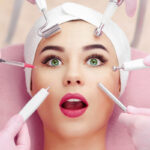THE WHAT? Tate & Lyle, the British sweetener maker, announced a $1.8 billion acquisition deal to buy U.S.-based CP Kelco. This strategic move aims to boost Tate & Lyle’s specialty ingredients business and cater to the growing demand for plant-based products.
THE DETAILS The acquisition deal comprises $1.15 billion in cash and the issuance of 75 million new Tate & Lyle shares to CP Kelco’s parent company, J.M. Huber Corporation. This transaction will result in J.M. Huber becoming Tate’s largest shareholder with a 16% stake and the right to appoint two non-executive directors to the Tate board. CP Kelco, known for its pectin, specialty gums, and other nature-based ingredients, has faced recent volume declines and margin pressures, raising investor concerns. The proposed transaction is expected to generate cost benefits of at least $50 million by the end of the second financial year post-completion.
THE WHY? The acquisition aligns with Tate & Lyle’s strategy to meet the increasing consumer demand for sustainable, plant-based products with fewer artificial additives. CEO Nick Hampton highlighted that the deal would help the company cater to the growing market for sustainable ingredients. Despite the strategic fit, Tate & Lyle’s shares fell by over 8%, reflecting investor apprehension about CP Kelco’s recent performance.
Clinical aesthetics products refer to a category of products used in the field of medical aesthetics or cosmetic dermatology. These products are typically designed and formulated to be used under the supervision of healthcare professionals, such as dermatologists, plastic surgeons, or trained aestheticians. They are distinct from over-the-counter cosmetics in that they often contain active ingredients or formulations that require expertise in their application or administration.
Examples of clinical aesthetics products include:
-
Dermal Fillers: Injectable substances used to add volume, smooth wrinkles, and enhance facial contours. Examples include hyaluronic acid fillers like Juvederm and Restylane.
-
Botulinum Toxin (Botox): Injectables that temporarily paralyze facial muscles to reduce the appearance of wrinkles caused by repetitive movements, such as frown lines and crow's feet.
-
Chemical Peels: Solutions applied to the skin to exfoliate and improve its texture. They can treat acne, pigmentation issues, and signs of aging.
-
Laser and Light Therapies: Devices that emit focused light or laser energy to treat various skin conditions, including acne, scars, and signs of aging.
-
Prescription Skincare Products: Formulations containing active ingredients like retinoids (vitamin A derivatives), hydroquinone, or prescription-strength antioxidants to address specific skin concerns under medical supervision.





